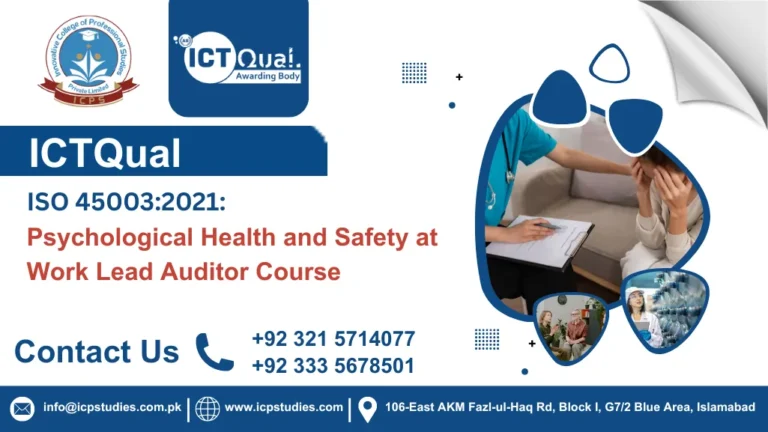In industries where exposure to hazardous substances poses significant risks to health and safety, specialized training becomes essential. The Level 1 Award in H2S Safety stands as a crucial qualification designed to equip individuals with the knowledge and skills necessary to work safely in environments where hydrogen sulfide (H2S) may be present. This certification not only enhances safety awareness but also ensures compliance with regulatory standards, making it invaluable for professionals across various sectors.
Hydrogen sulfide is a colorless, highly toxic gas that is commonly found in industries such as oil and gas, wastewater treatment, and agriculture. Exposure to H2S can occur during drilling operations, sewage handling, and chemical manufacturing processes. Due to its toxic properties, including its ability to cause respiratory paralysis at high concentrations, proper training in H2S safety is crucial to prevent accidents and protect personnel.
The Level 1 Award in H2S Safety is essential for individuals whose work involves potential exposure to hydrogen sulfide gas. By obtaining this certification, professionals not only protect their own health but also contribute to safer work environments for their colleagues and communities. As industries continue to prioritize safety and regulatory compliance, investing in H2S safety training becomes a critical step towards mitigating risks and ensuring the well-being of all personnel involved. Whether you are new to the industry or seeking to advance your safety credentials, this qualification equips you with the necessary skills to navigate hazardous environments with confidence and competence.
All About ICTQual Level 1 Award in H2S Safety
Course Overview
The Level 1 Award in H2S Safety is a specialized training program designed to educate individuals on the hazards associated with hydrogen sulfide (H2S) and to equip them with the necessary skills to work safely in environments where H2S may be present. Hydrogen sulfide is a highly toxic, colorless gas that can pose significant health risks, including respiratory issues and even death at high concentrations. This certification is essential for individuals working in industries such as oil and gas, wastewater treatment, chemical manufacturing, and agriculture, where H2S exposure is a potential hazard.
The Level 1 Award in H2S Safety plays a critical role in ensuring the safety and well-being of workers in industries where hydrogen sulfide exposure is a concern. By equipping participants with essential knowledge, skills, and best practices, this certification helps mitigate risks associated with H2S and fosters a safer working environment. Investing in H2S safety training not only protects individuals from harm but also contributes to overall workplace safety and regulatory compliance, making it a valuable credential for professionals seeking to excel in their careers while prioritizing safety.
Study Units
- Introduction to Hydrogen Sulfide (H2S)
- Health Risks and Symptoms of H2S Exposure
- Detection and Monitoring of H2S
- Safety Procedures and Emergency Response
- Personal Protective Equipment (PPE)
- Legislative and Regulatory Requirements
The entry requirements for the ICTQual Level 1 Award in H2S Safety typically include:
- Age Requirement: Participants must be at least 18 years old.
- Basic Literacy and Numeracy: Competence in reading, writing, and basic math skills to understand course materials and assessments.
- Health and Safety Awareness: A basic understanding of general health and safety practices, especially related to hazardous environments.
- Job Role Relevance: Ideally, participants should be employed in roles that may expose them to hydrogen sulfide (H2S) environments, such as oil and gas workers.
- Physical Capability: Ability to participate in practical training exercises safely.
- Registration: Completion of necessary registration forms and payment of any applicable fees.
Always check with the specific training provider for any additional or specific entry requirements, as they can vary.
The ICTQual Level 1 Award in H2S Safety is designed for:
- Oil and Gas Workers: Individuals working in environments where hydrogen sulfide (H2S) may be present, such as drilling and production sites.
- Safety Personnel: Safety officers and professionals responsible for implementing safety protocols related to hazardous gases.
- Supervisors and Managers: Site supervisors and managers who need to understand H2S safety practices to ensure the safety of their teams.
- Emergency Responders: Personnel who may respond to incidents involving H2S exposure.
- New Entrants: Individuals seeking to enter the oil and gas industry or related fields who need foundational knowledge of H2S safety.
Learning Outcome
Introduction to Hydrogen Sulfide (H2S)
- Identification: Participants will be able to identify hydrogen sulfide (H2S) as a colorless, highly toxic gas with a characteristic odor of rotten eggs.
- Sources: Understand the natural and industrial sources of H2S, including its occurrence in oil and gas operations, wastewater treatment, and chemical manufacturing.
- Behavior: Learn about the behavior of H2S in different environmental conditions and its potential to accumulate in confined spaces.
Health Risks and Symptoms of H2S Exposure
- Health Effects: Understand the acute and chronic health effects of H2S exposure, including respiratory irritation, headaches, nausea, and at high concentrations, unconsciousness and death.
- Symptom Recognition: Recognize the early signs and symptoms of H2S exposure in oneself and others.
- First Aid: Learn basic first aid measures for individuals exposed to H2S, including administering CPR and administering oxygen.
Detection and Monitoring of H2S
- Detection Methods: Understand the principles and methods of detecting H2S, including the use of portable gas detectors, fixed gas monitoring systems, and detector tubes.
- Monitoring Procedures: Learn how to conduct atmospheric monitoring for H2S in various workplace settings, including calibration of equipment and interpreting monitoring results.
- Alarm Systems: Understand the importance of alarm systems and their function in warning workers of dangerous H2S levels.
Safety Procedures and Emergency Response
- Safe Work Practices: Develop and implement safe work practices to minimize the risk of H2S exposure, including ventilation, isolation, and control measures.
- Emergency Procedures: Understand emergency response protocols for H2S incidents, including evacuation procedures, emergency shutdowns, and communication with emergency services.
- Rescue Techniques: Learn basic rescue techniques for removing individuals exposed to H2S from hazardous environments, including the use of respiratory protection and rescue equipment.
Personal Protective Equipment (PPE)
- Selection and Use: Identify appropriate personal protective equipment (PPE) for H2S exposure, including respirators (SCBA and air-purifying), protective clothing, gloves, and eye protection.
- Proper Fit: Understand the importance of proper fit, inspection, maintenance, and storage of PPE to ensure effectiveness and worker safety.
- Training: Provide training on the correct use and limitations of PPE for H2S exposure, including donning and doffing procedures.
Legislative and Regulatory Requirements
- Legal Framework: Understand the legislative and regulatory requirements related to H2S exposure in the workplace, including occupational exposure limits, reporting obligations, and employer responsibilities.
- Compliance: Ensure compliance with relevant standards, codes of practice, and industry guidelines for managing H2S hazards.
- Documentation: Maintain accurate records and documentation related to H2S monitoring, exposure assessments, and training to demonstrate regulatory compliance.
These learning outcomes are designed to equip participants with the knowledge and skills necessary to work safely in environments where hydrogen sulfide (H2S) may be present. By mastering these concepts, individuals can effectively mitigate risks associated with H2S exposure and contribute to a safer workplace environment.
FAQs about ICTQual Level 1 Award in H2S Safety






